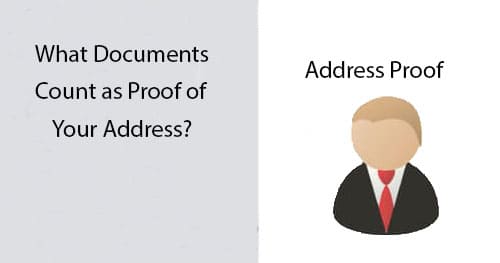What Documents Count as Proof of Address DMV?
What documents count as proof of address at the DMV, when you’re getting a new driver’s license, renewing your existing one or registering a vehicle. The proof of address is an essential requirement at the Department of Motor Vehicles during the process of license and vehicle registration.
For a number of reasons, including correct communication and residence verification, your proof of address is essential. In this blog post, we will explore “what documents count as proof of address at the DMV?
What Documents Count as Proof of Address DMV?
Here are different types of documents count as proof of address at the DMV.
*1. Driver’s license or state identification card
Your current driver’s license or state identity card is an easiest way to present as proof of address at the DMV. These documents can be used as proof of address because they typically call for a current address.
*2. Utility Bills:
Utility bills, like those for water, gas, electricity, or cable, are usually the documents count as proof of address at the DMV. Make sure your name and current address are visible on recent (often within the last 60-90 days) bills. Usually, printed or digital versions are allowed.
*3. Bank Statements:
The majority of banks send monthly statements to your current address. Bank statements include your name and current address, usually these official documents count as proof of address at the DMV. Make sure these statements are recent and not too old.

*4. Lease or Rental Agreement:
A lease or rental agreement is also one of the documents count as proof of address at the DMV, if you are living in a rented house. Your name, the property’s address, and both of your signatures should appear on these papers. Digital copies or photocopies may be accepted.
*5. Mortgage Statement:
Mortgage statement is another one of the documents count as proof of address at the DMV for home owners. Mortgage statement includes name of owner and the address of the property which makes it a valid option. Make sure it is recent and not outdated.
*6. Vehicle Registration or Title:
If you’re registering a vehicle, your vehicle registration or title can often be used as your proof of address, especially if it displays your current residential address.
*7. Insurance Policy Documents:
Insurance policy, such as health, auto, or home insurance policies are also such documents count as proof of address at the DMV. Ensure these documents include your name and current address.
*8. Voter Registration Card:
Your name and residential address are normally listed on your voter registration card. This is one of the official documents which count as proof of your address at the DMV.

*9. Paycheck Stubs or Employment Documents:
Your paycheck stubs or other employment-related documents, such as an employment contract or offer letter, can be used to prove your address. Your name and address need to be on these records.
*10. Social Services or Government Assistance Documents:
If you receive government assistance or social services, documents related to these programs may be accepted as proof of address.
*11. College Enrollment or School Records:
For students, college enrollment documents or school records also count as proof of address at the DMV. Your name and present address are usually included in such documents.
However, it’s vital to keep in mind that DMV rules may vary by state therefore, it’s important to confirm what exact documents they count as proof of address with your local DMV office or on their website. Additionally, whenever necessary, bring original documents or copies that have been certified or notarized.

